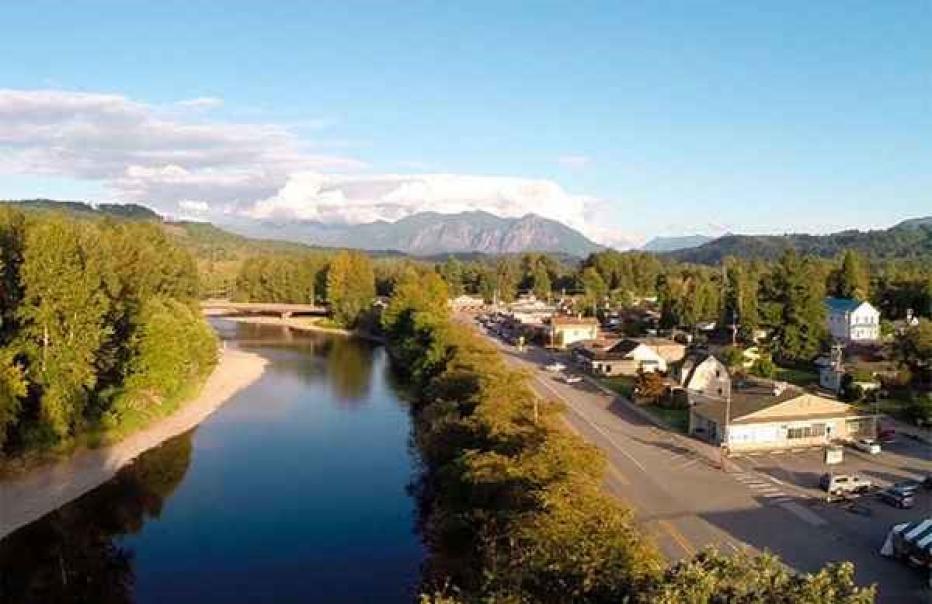
Fall City, an unincorporated rural town in Washington state’s King County with a population of just under 2,000 people, has faced wastewater challenges for decades. These issues have adversely affected local businesses and posed risks to public health and the environment in the Snoqualmie River Valley.
Fall City’s business district is finally getting relief. A shared drain field, funded by almost $9 million from Washington State and Federal American Rescue Plan grants, will replace aging septic tanks – and Jacobs played a crucial role, supporting the Fall City Waste Management System team as well as the local community to develop an innovative and cost-effective wastewater infrastructure.
From historical challenges…
Today, wastewater produced by the Fall City Business District is disposed by individual onsite sewage systems, some of which are either aging, too small, and/or lack capacity to support business needs. Some septic tanks drain directly through sandy soils into the nearby Snoqualmie River without the treatment provided by an appropriately sized wastewater system.
To address this issue, in 2016, the County Public Health Department estimated that only 14 systems of the 50 parcels with permanent structures were at one point considered approved systems. The lack of adequate wastewater infrastructures has limited the communities’ abilities to develop and use their properties and has comprised a significant public health and environmental hazard.
The challenges in Fall City started a little over four decades ago when a Washington State highway project (SR 202) was constructed along the Snoqualmie River in Fall City. This highway project required existing businesses and residence to be relocated out of the new highway corridor. Many of the structures were moved on top of their existing septic systems, which has resulted in 40 years of problems. While there have been many attempts to solve the problems caused by the highway project, they have failed due to the significant costs and/or lack of public approval. That is, until now.
…to an innovative, resilient solution for the future
Jacobs designed an innovated solution that includes replacement of the existing septic tanks with new tanks, equipped with pumps. The tanks pump wastewater into a small diameter pressure main that discharges to a small, packaged membrane treatment unit. Treated water is then sent to a nearby park, where it is used as sub-surface irrigation.
Construction is underway on this significant project, and the objective is to provide clean water and improve human health by April 2026. Once construction is complete, King County will transition ownership of the system back to the community, who will manage the operation under the Fall City Sewer Association. And, the project has been such a success to date that it earned the King County 2023 Best-Run Government Innovation Award for Climate and Environmental Stewardship.
“This project has been very rewarding for me, since it is impacting the community where I work and live,” says Jacobs Project Manager Brian Shuck. “It has been especially rewarding to see the community, King County, and Jacobs come together to solve a problem that has challenged Fall City for many years. It is a bonus that the project has received the 2023 best-run government innovation award. “
Did you know?
-
25 K
gallons of wastewater a day can be treated as part of the system
-
4.2 K+
lineal feet of small diameter conveyance lines are part of the system
-
46
septic tanks replaced with new pumping tanks on project
-
~$ 9 M
in government funding we assisted the County in obtaining
-
16.7 %
of design activities were performed by women and minority owned businesses
About water resource recovery at Jacobs
While we didn’t invent today’s modern sewerage systems, we understand that all water – even wastewater – is a precious resource and not something we should simply dispose of; and therefore, we take the total water cycle into consideration when engineering solutions and developing cutting-edge technologies to collect, reclaim and reuse wastewater.












































